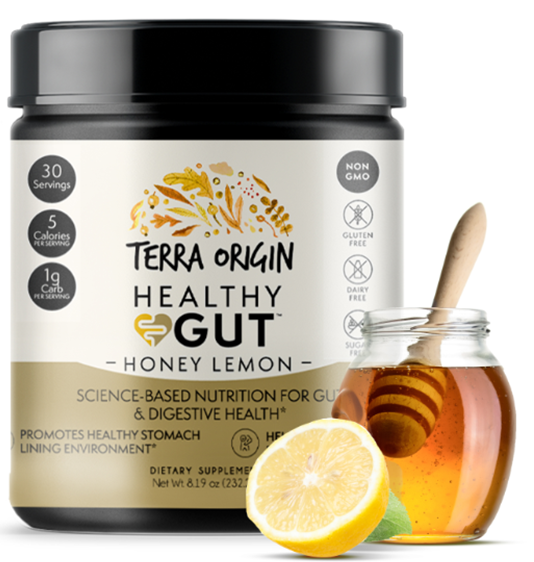Discover the Secret to Digestion and Immunity With Gut Health Support

Comprehending Digestive Tract Health
Comprehending digestive tract health and wellness is vital for general well-being, as it plays a considerable duty in food digestion, resistance, and even mental health and wellness. The intestine, consisting of the stomach tract, is in charge of damaging down food, taking in nutrients, and expelling waste. A balanced gut environment makes sure reliable digestion, allowing the body to make use of nutrients successfully.
Moreover, gut health substantially affects the body immune system. The gut houses a significant section of the body's immune cells, and a healthy and balanced digestive tract can aid repel microorganisms and minimize swelling. Interruptions in intestine wellness can result in an over active immune feedback, potentially contributing to autoimmune conditions and allergic reactions.
In addition, the digestive tract is often referred to as the "2nd brain" due to the gut-brain axis, an intricate communication network linking the mind and the intestine. This connection influences mood, cognition, and emotional wellness. Issues such as dysbiosis, defined by an imbalance in gut bacteria, have been associated with mental health and wellness problems, consisting of anxiousness and anxiety.
The Digestive Tract Microbiome Explained

The digestive tract microbiome, a varied community of microbes living in the intestinal system, plays a critical function in maintaining digestive system health and wellness and overall health. Making up trillions of microorganisms, infections, fungis, and other microorganisms, this complex community help in the food digestion of food, the synthesis of vital nutrients, and the policy of metabolic procedures.
Each individual's digestive tract microbiome is unique, influenced by elements such as diet, way of living, genes, and environmental exposures. A balanced microbiome supports ideal digestion by breaking down facility carbs, creating short-chain fats, and promoting the absorption of nutrients. Alternatively, a discrepancy, often referred to as dysbiosis, can cause digestive problems, including short-tempered bowel syndrome (IBS) and inflammatory bowel illness (IBD)
Study has actually shown that a varied microbiome is connected with better health results, emphasizing the importance of nutritional choices in supporting these microbes. Foods rich in fiber, probiotics, and prebiotics, such as fruits, veggies, and fermented items, can promote a healthy and balanced microbiome. Comprehending the intestine microbiome is crucial for creating targeted treatments focused on improving digestive wellness and stopping intestinal illness.

Connection Between Food Digestion and Immunity
A robust connection exists between food digestion and immunity, highlighting the important duty of the intestine in keeping general wellness. The intestinal tract is home to trillions of microbes that develop the gut microbiome, which significantly affects both immune feedbacks and digestive processes. This complex ecological community help in damaging down food, absorbing nutrients, and offering necessary metabolites that sustain immune function.
When digestion is efficient, the digestive tract barrier continues to be undamaged, avoiding unsafe virus from going into the weblink blood stream. About 70% of the immune system lives in the gut-associated lymphoid tissue (GALT), which connects very closely with the digestive tract microbiome.
Tips for Supporting Gut Wellness
Sustaining gut health is vital for keeping both digestion efficiency and a well-functioning immune system. To promote optimum digestive tract health and wellness, take into consideration integrating numerous sensible approaches right into your day-to-day routine.
First, prioritize hydration. Drinking appropriate water supports digestion and assists keep the mucosal lining of the intestinal tracts. Furthermore, normal exercise can enhance digestive tract mobility and advertise a varied microbiome.
Mindful eating practices are likewise essential. Eating food completely and consuming gradually can assist digestion and prevent over-eating, which may worry the digestive tract. Handling stress and anxiety with strategies such as meditation, yoga exercise, or deep-breathing workouts can favorably affect gut wellness, as tension is understood to disrupt gastrointestinal processes.
Including prebiotics and probiotics into your program is an additional efficient method. While specific foods will certainly be discussed later on, comprehending the value of these elements is critical. Prebiotics serve as food for useful intestine microorganisms, while probiotics present live valuable organisms.
Last but not least, prevent extreme use prescription antibiotics, as they can interfere with the equilibrium of intestine plants. By following Recommended Reading these ideas, you can substantially add to the upkeep of a healthy and balanced gut, which is crucial for general health and wellness and vitality.
Foods That Promote Digestive Tract Health

Fermented foods, such as yogurt, kimchi, kefir, and sauerkraut, are rich in probiotics, which are useful germs that sustain intestine plants and boost digestion. These foods can help restore balance in the gut, especially after antibiotic usage or digestive disruptions.
Along with fermented options, prebiotic foods, such as garlic, onions, asparagus, and bananas, work as nourishment for these probiotics, advertising their development and task. These soluble fibers sustain gut motility and can reduce problems like constipation.
Furthermore, integrating high-fiber foods, including entire grains, fruits, legumes, and veggies, is essential for preserving a healthy and balanced gut. Fiber help in routine defecation and assists avoid digestive system problems.
Finally, omega-3 fats located in fatty fish, flaxseeds, and walnuts have anti-inflammatory residential or commercial properties that can further sustain intestine health. Emphasizing these foods in your diet plan can result in a robust digestion system and enhanced immune function.
Verdict
In verdict, focusing on digestive tract health is essential for enhancing food digestion and improving immunity. A well balanced intestine microbiome, influenced by dietary options and lifestyle factors, plays an important function in nutrient absorption and inflammation decrease.
Recognizing digestive tract wellness is important for total wellness, as it plays a significant function in digestion, immunity, and even mental health. The gut houses a significant section of the body's immune cells, and a healthy and balanced gut can assist fend off microorganisms and minimize swelling.In addition, the gut is typically referred to as the "2nd brain" due to the gut-brain axis, an intricate communication network linking the mind and the digestive tract.A robust connection exists between digestion and resistance, highlighting the critical function of the gut in maintaining total wellness.In verdict, focusing on gut health is essential for enhancing digestion and improving immunity.